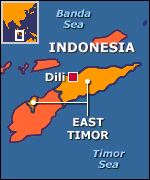
While the 45 year-old Non-Aligned Movement (NAM) has had to frequently deal with the question of its relevancy, two new members were accepted at its ministerial meeting which ends in Putrajaya today. The entry of the two Caribbean island nations of Dominica along with Antigua and Barbuda bolsters the membership to 116. After leading the movement since 2003, Malaysia will hand over the chairmanship to Cuba in September. Aware of the growing challenges facing NAM, the meeting had deliberated on strategies and approaches to protect and advance the interests of the movement. The issues range from international politics and security to economics and trade, development, human rights, the environment, international terrorism to social and cultural issues, among others. While NAM is generally united on broad matters of principles of importance to the movement, they are sometimes unable to use their numerical strength to their best advantage. They could, for instance, make a bigger
impact on the reform and restructuring of the United Nations. In a world with new realities. NAM has to adjust to the changes. It can do so without abandoning its fundamental principles of seeking a more just, equitable and peaceful world.

